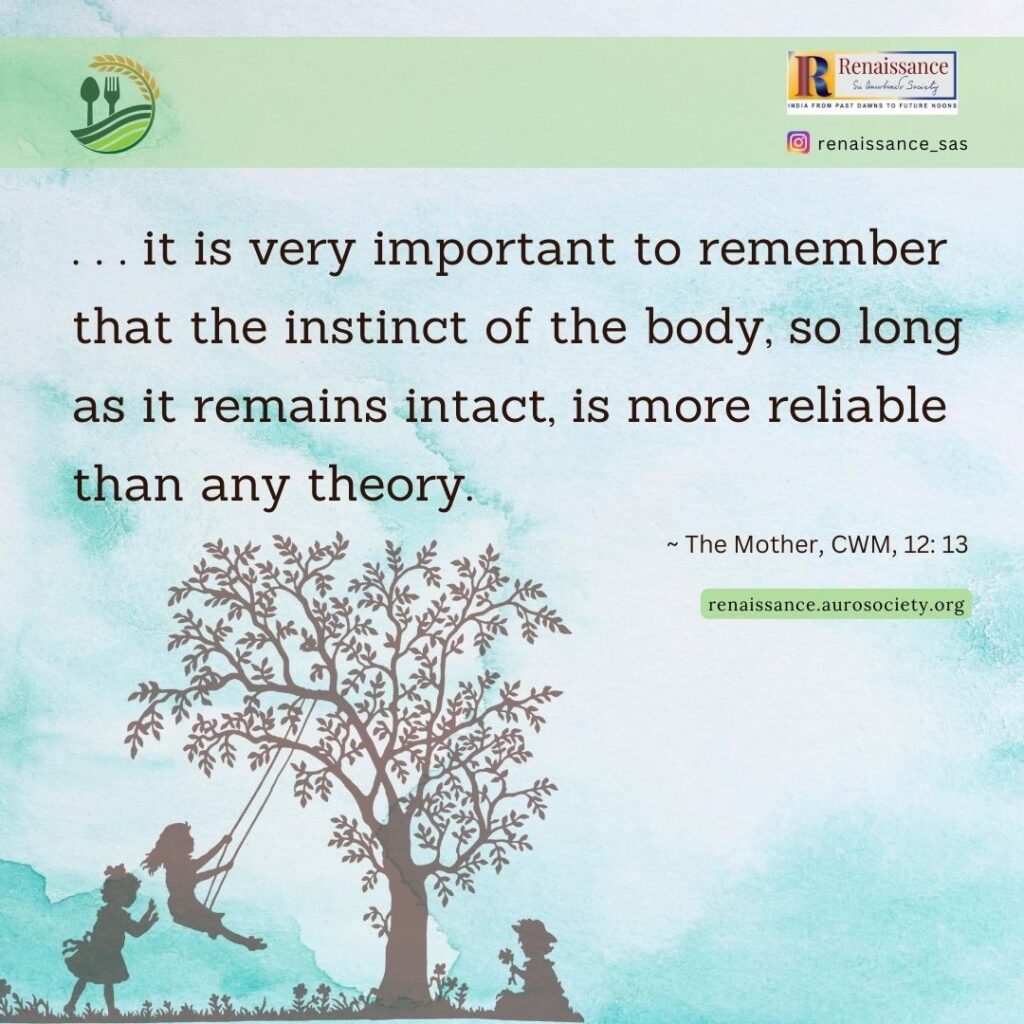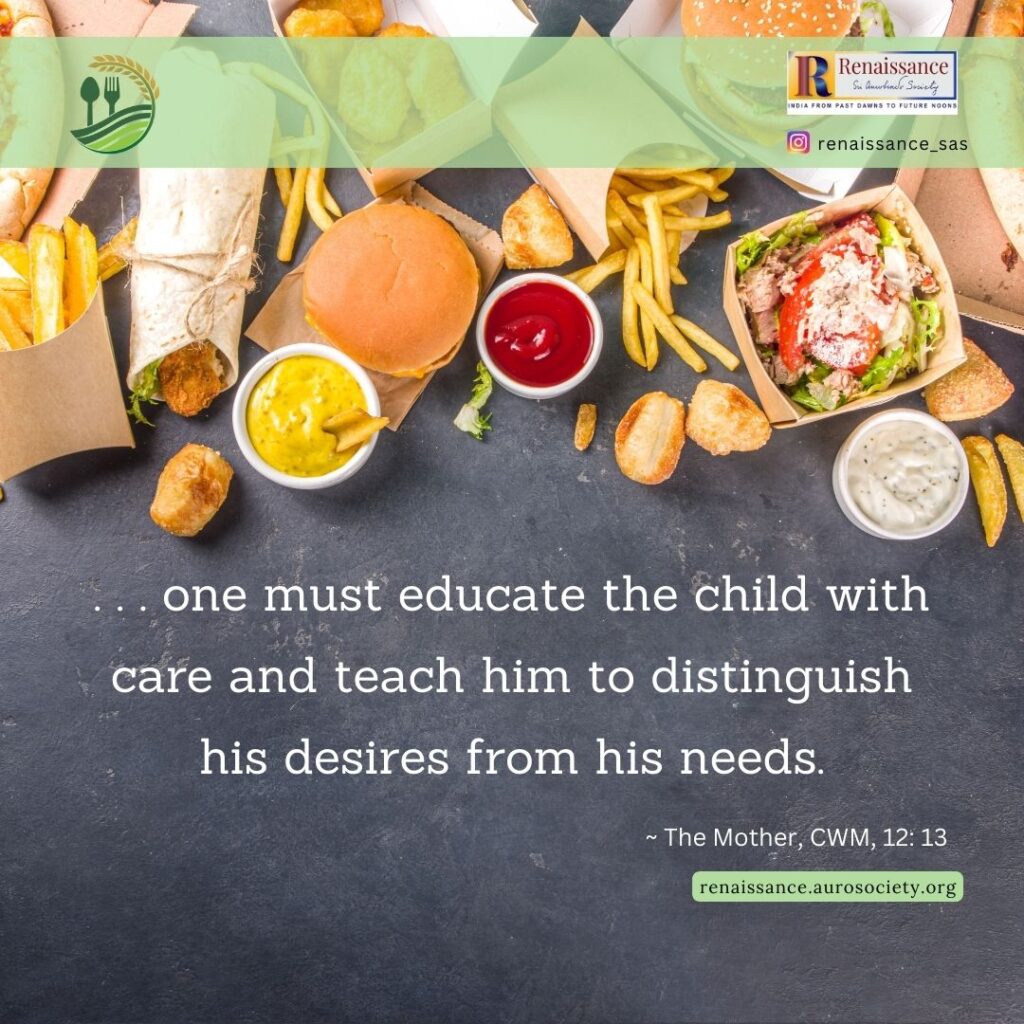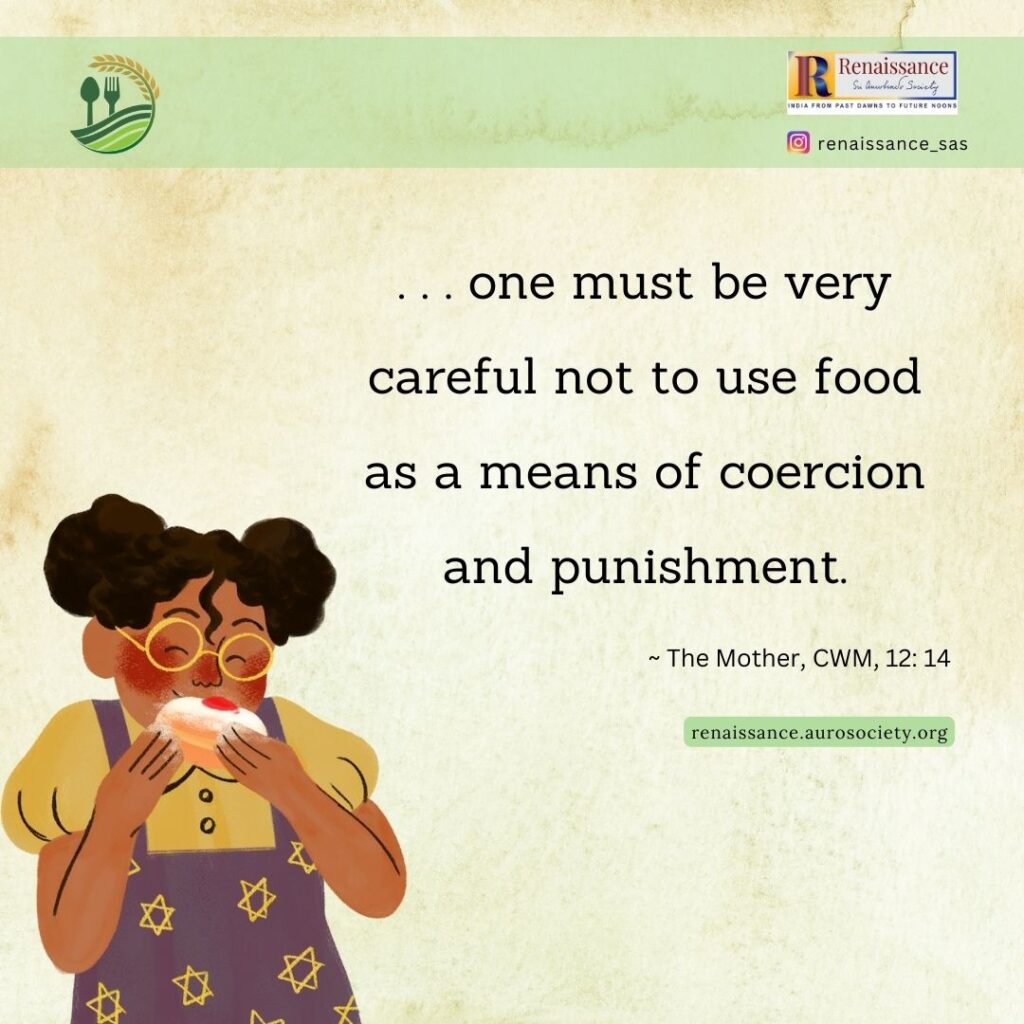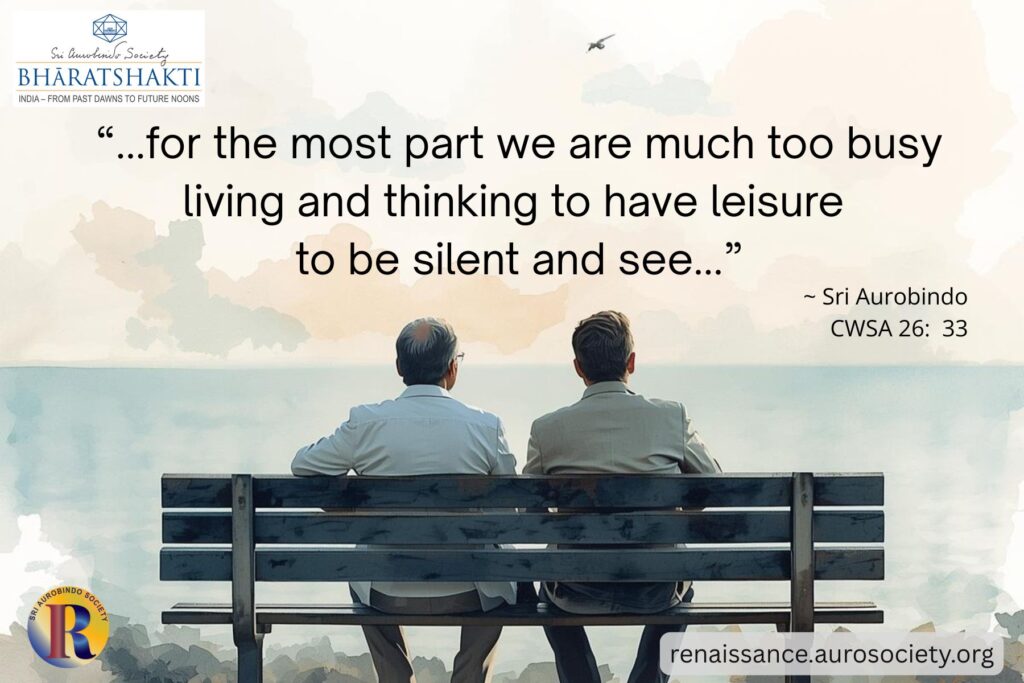Editor’s note: In her writings on five-fold education, while discussing physical education the Mother highlighted the importance of inculcating in the children healthy habits related to food. She emphasised the point that children must be taught to eat according to hunger, neither more nor less, and not to make meals an occasion to satisfy their greed or gluttony. We have made a few minor formatting revisions for this digital presentation.

Of all the domains of human consciousness, the physical is the one most completely governed by method, order, discipline, process. The lack of plasticity and receptivity in matter has to be replaced by a detailed organisation that is both precise and comprehensive. In this organisation, one must not forget the interdependence and interpenetration of all the domains of the being.
However, even a mental or vital impulse, to express itself physically, must submit to an exact process. That is why all education of the body, if it is to be effective, must be rigorous and detailed, far-sighted and methodical. This will be translated into habits; the body is a being of habits.
But these habits should be controlled and disciplined, while remaining flexible enough to adapt themselves to circumstances and to the needs of the growth and development of the being.
All education of the body should begin at birth and continue throughout life. It is never too soon to begin nor too late to continue.
Physical education has three principal aspects:
- control and discipline of the functioning of the body,
- an integral, methodical and harmonious development of all the parts and movements of the body and
- correction of any defects and deformities.
It may be said that from the very first days, even the first hours of his life, the child should undergo the first part of this programme as far as food, sleep, evacuation, etc. are concerned.
If the child, from the very beginning of his existence, learns good habits, it will save him a good deal of trouble and inconvenience for the rest of his life; and besides, those who have the responsibility of caring for him during his first years will find their task very much easier.

Naturally, this education, if it is to be rational, enlightened and effective, must be based upon a minimum knowledge of the human body, of its structure and its functioning.
As the child develops, he must gradually be taught to observe the functioning of his internal organs so that he may control them more and more, and see that this functioning remains normal and harmonious. As for positions, postures and movements, bad habits are formed very early and very rapidly, and these may have disastrous consequences for his whole life.
Those who take the question of physical education seriously and wish to give their children the best conditions for normal development will easily find the necessary indications and instructions. The subject is being more and more thoroughly studied, and many books have appeared and are still appearing which give all the information and guidance needed.
It is not possible for me here to go into the details of the application, for each problem is different from every other and the solution should suit the individual case.
The Question of Food
The question of food has been studied at length and in detail; the diet that helps children in their growth is generally known and it may be very useful to follow it. But it is very important to remember that the instinct of the body, so long as it remains intact, is more reliable than any theory.
Accordingly, those who want their child to develop normally should not force him to eat food which he finds distasteful, for most often the body possesses a sure instinct as to what is harmful to it, unless the child is particularly capricious.
The body in its normal state, that is to say, when there is no intervention of mental notions or vital impulses, also knows very well what is good and necessary for it; but for this to be effective in practice, one must educate the child with care and teach him to distinguish his desires from his needs.
He should be helped to develop a taste for food that is simple and healthy, substantial and appetising, but free from any useless complications.

In his daily food, all that merely stuffs and causes heaviness should be avoided; and above all, he must be taught to eat according to his hunger, neither more nor less, and not to make his meals an occasion to satisfy his greed or gluttony. From one’s very childhood, one should know that one eats in order to give strength and health to the body and not to enjoy the pleasures of the palate.
Children should be given food that suits their temperament, prepared in a way that ensures hygiene and cleanliness, that is pleasant to the taste and yet very simple. This food should be chosen and apportioned according to the age of the child and his regular activities. It should contain all the chemical and dynamic elements that are necessary for his development and the balanced growth of every part of his body.
Since the child will be given only the food that helps to keep him healthy and provide him with the energy he needs, one must be very careful not to use food as a means of coercion and punishment.
The practice of telling a child, “You have not been a good boy, you won’t get any dessert,” etc., is most harmful. In this way you create in his little consciousness the impression that food is given to him chiefly to satisfy his greed and not because it is indispensable for the proper functioning of his body.

Also read:
Cultivation of the Sense of Taste without Attachment to Food
~ Design: Beloo Mehra



